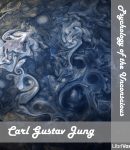
Psychology of the Unconscious
Jung says in his subtitle that this work is a study of the transformations and symbolisms of the libido and a contribution to the history of the evolution of thought. [chương_files]

Jung says in his subtitle that this work is a study of the transformations and symbolisms of the libido and a contribution to the history of the evolution of thought. [chương_files]
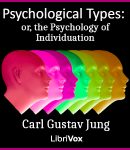
Ever wondered if there is any “theoretical basis” for the well-known Myers–Briggs Type Indicator Personality Test? In this groundbreaking work of typology, Jung proposes three key dichotomies – extraversion/introversion, sensation/intuition, as well as thinking/feeling – as an attempt to reconcile the differing theories of Sigmund Freud and Alfred Adler. – Summary by Cao Yuqing [chương_files]
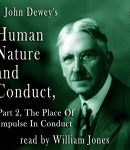
Part 2 describes Dewey’s concept of IMPULSES. They encompass the interaction of one’s self with the environment. When the environment encounters problems with one’s HABITS, Impulses are the motivating, innate forces which prompt one to modify habits and/or modify the environment. “Nature vs Nurture” explanations of someone’s personality are deceptive and fallacious. This stems from the human inclination to CLASSIFY things – practically everything! Innate behaviors are a collection of habits which one’s culture has solidified as Customs. Most education is not learning but rather training of one’s habits to harmonize with local customs. Human nature is plastic, malleable. Customs are, almost by definition, rigid. And, because one’s environment is always changing, customs and its supporting habits are continually being tested. Nations disintegrate when their customs grow inflexible. A MORAL ACT is one whose effects are fine tune and reorganize habits. Thought arises then when habits are hindered and only impulses are active. The basic motor of human nature and conduct is HABIT, not reason or innate instinctive drives. In Dewey’s theories of education, he asserts that education should be leading youth away from society’s dysfunctional habits. He decries the fact that our economic theories concentrate on OWNERSHIP of things rather than the ways we USE things. – Summary by William Jones, Soloist [chương_files]

After an introduction to the Ole Jerry McAuley Mission in the year 1912, many wonderful stories of destitute alcoholics and addicts making a quick recovery through a surrender to Christ Jesus. The book gives glimpses that the years of the highly esteemed Samuel H. Hadley have allowed for the “Evangelical Podium” to firmly take root in the Mission and is corroding the original purpose (the original purpose of this mission was to provide a place for chronic alcoholics and addicts who had spiritual experiences during incarceration to continue it outside of prison and not end up back at their old haunts after being repeatedly rejected by churches and society). The book tells of the on-goings in the new Ole Jerry McAuley Mission at 316 Water Street, NYC, during the early 1900’s. Many things seem to have changed since the 1870’s when Jerry McAuley ran the mission. First, anyone was welcome. Second, the years of sobriety touted in this book were two to five, as opposed to the decades and quarter centuries in its earlier times. Thirdly, advertising their mission, or testifying for the mission was the goal as opposed to living a spiritually guided life. This book tells of many great successes but it wasn’t achieving the same high success rate. (Summary by Curt Walton) [chương_files]
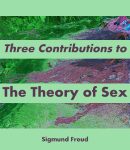
In this little book Freud discusses three areas of human sexuality: 1. Sexual pervisons or abberations. In this essay, Freud concludes that “a disposition to perversions is an original and universal disposition of the human sexual instinct and that…this postulated constitution, containing the germs of all the perversions, will only be demonstrable in children“. 2. His second essay on “The Infantile Sexuality”, argues that children have sexual urges, from which adult sexuality only gradually emerges via psychosexual development. Looking at children, Freud identified many forms of infantile sexual emotions, including thumb sucking, autoeroticism, and sibling rivalry in childhood. 3. In his third essay, “The Transformations of Puberty”, Freud formalized the distinction between the ‘fore-pleasures’ of infantile sexuality and the ‘end-pleasure’ of sexual intercourse. He also demonstrated how the adolescent years consolidate sexual identity under the dominance of the genitals in puberty. Originally published in 1905, Freud added significant insights over the next three editions to increase the length to about double it’s original size. This is the third and last edition published in 1920. (Summary by Phil Chenevert and Wikipedia) [chương_files]
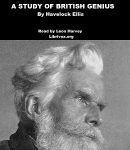
The psychological and anthropological character of genius in the British Isles was investigated by Ellis. Citing and collating an extensive source of information from the Dictionary of National Biography, many pieces of informational are discussed, including the ancestral heritage, geographical distribution, professions, and health and morbidity of the most the most preeminent men and women of the time. This work also promotes his theory that large cities are not only counterproductive to the development of high achievers, but detrimental to national health. (Summary by Leon Harvey) [chương_files]
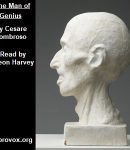
Famous criminologist, anthropologist, and psychiatrist, Dr Lombroso, investigated the memetic anecdotal belief that genius is associated with degenerative symptoms, or may even be a version of insanity, and presented his findings as a fascinating and controversial theory that the creative and imaginative celebrities throughout history have also displayed what he termed as “atavistic” symptoms, or defects resembling what is commonly seen in the unwell. Citations of evidence are drawn from a rich variety of references sources, including autopsy reports of brains and skulls, biographical data, the influence of environmental and seasonal changes on inventiveness, and even from the records of thousands of admittance into prisons and asylums of France and Italy. This book can be considered as a sort of sequel to his better known and also highly controversial theories about criminality associated with physical manifestations, often categorised as “psuedoscience”. However, it should be noted that although his claims are factual and verifiable, his choice of selective evidence and the absence of a control group should be considered when reading the book. – Summary by Leon Harvey [chương_files]

Surely all of us know fear, and know the different types of fear we can experience. In this book, Arthur Christopher Benson walks us through these different types, going through a range of different topics, among others childhood fears many of us will remember, to the fears plaguing us in other periods of our lives, the origins of different fears, and essays on what a number of notable authors (of fiction) had to say about the subject. It should be noted that this book is not a scientific study, though written by an eminent scholar. Instead, all of Arthur Christopher Benson’s remarkable talents as a story teller are shaping these chapters. – Summary by Carolin [chương_files]
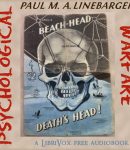
Psychological warfare and propaganda have been used extensively in warfare since the earliest times. This book explores the functions, limitations, types, and history of psychological warfare through 1953. It was written by Paul Myron Anthony Linebarger, a US Army officer, a noted East Asia scholar, and an expert in psychological warfare, also known by the pseudonym Cordwainer Smith as a science fiction author. Linebarger had extensive experience with the practice and implementation of psychological warfare techniques in the field through his work with the Office of War Information, the Operation Planning and Intelligence Board, and the CIA. The text contains many pictured examples of propaganda. The listener is encouraged to view them HERE. – Summary by Karlgermain and TriciaG [chương_files]

Reputedly inspired by the Sherlock Holmes stories, Austrian criminal jurist and examining magistrate Hans Gross wrote the first handbook on criminal investigation. This treatise covers everything from the qualities of a good investigating officer and how to utilize various experts, to tactics employed by criminals, how to analyze footprints and blood stains, and ways that criminals perpetrate crimes. Some of the remarks relate directly to India, such as disguising one’s caste. Volume 2 (of 3) consists of Parts 2 and 3 of the 4 parts in the work. – Summary by TriciaG [chương_files]
Copyright © 2024 | FreeAudible